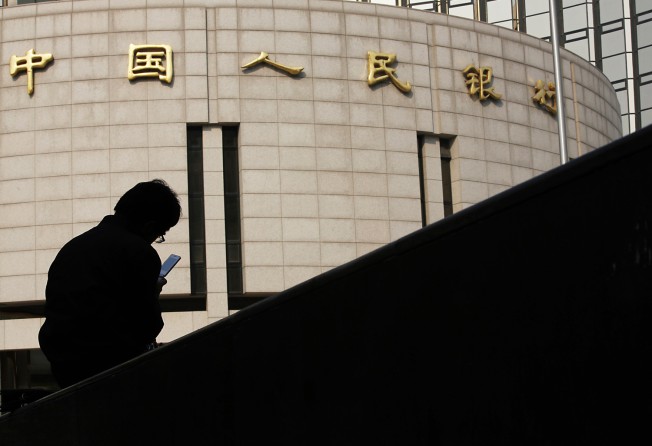
Beijing's financial reforms will push up interest rates
The mainland's plan to let market forces set lending costs and allocate credit will be worth it despite the pain endured by some, like state firms

In recent months Beijing has slowly been relaxing its long-standing controls over the mainland's interest rates.
In July last year, the central bank scrapped its minimum lending rates, in theory allowing banks complete freedom to set interest rates on loans to commercial customers.

Then last month the People's Bank of China allowed the sale of negotiable certificates of deposit in the interbank market; an initial step towards liberalising deposit rates.
So far the effects of these reforms have been hard to detect. That's because the central bank still dictates the maximum interest rates that mainland households and companies can earn on their bank deposits.
And the rates it decrees are low. At present, the highest interest rate that savers can earn on their demand deposits is a derisory 0.385 per cent. With consumer inflation running at 2.5 per cent, that means the majority of China's depositors are losing money in real terms.
By setting regulated deposit rates so low, the authorities distort the whole of China's interest rate structure, holding down borrowing costs and almost entirely negating recent moves towards more market-determined interest rates.
At some point over the coming months, however, the PBOC wants to scrap the ceilings it sets on deposit rates, dismantling its last remaining regulatory controls and finally allowing market forces to set interest rates and allocate credit in China's real economy.
When it does, banks will begin competing to attract savers by offering higher deposit rates. In turn, that will push up bank lending rates for most borrowers, and China's interest rates will rise across the board.
There are few key reforms to put in place first. Before it can liberalise deposit rates, Beijing needs to introduce a deposit insurance scheme.
The authorities also need to make it abundantly clear that only investment products that carry an explicit guarantee - like insured deposits - carry any guarantee at all. Implicit guarantees count for nothing.
Market interest rates will advance the rebalancing so desperately needed
Beijing must also stress that the government does not guarantee bank loans to state-owned companies or local government-backed investment projects. Only when these implicit guarantees are eliminated will lenders be able to assess credit risk accurately and price loans accordingly.
As a result, some private sector businesses, especially service sector companies which until now have largely been crowded out of the formal loan market, are likely to see their borrowing costs fall.
But for most borrowers, notably those in the state sector, loans will get more expensive.
How far rates will rise is uncertain. Traditionally, analysts have always reckoned that the "natural" interest rate for any economy should be close to its real growth rate plus inflation.
For China, that would mean a benchmark rate of about 10 per cent. However, a number of economists have pointed out that China's exceptionally high savings rate should depress its natural interest rate. As a result, they believe that a healthy benchmark interest rate for China should be somewhere between 7 and 8 per cent.
With the seven-day repo rate - the key market rate - currently at 4.3 per cent, that implies the removal of the PBOC's ceiling on deposit rates could see China's interest rates climb by about three percentage points.
That will cause problems. Some borrowers will have trouble servicing their debts. Meanwhile, higher interest rates will make the yuan even more attractive to international investors and entice even more hot money flows into China.
Still, the reforms will be worth it. Higher deposit rates for savers will lift household incomes, encouraging consumption. Meanwhile higher lending rates will shift the allocation of credit away from overinvested state industries towards resource-starved service companies in the private sector.
In other words, moving towards market-determined interest rates will advance the rebalancing so desperately needed if China's economic development is to switch to a more sustainable trajectory.
Of course, the People's Bank of China won't be completely hands-off. Like any central bank, it will set its short-term policy rates and dip into and out of the money markets in order to steer interbank interest rates.
But as far as the future of China's real economy is concerned, letting market forces rather than the authorities allocate credit can only be a good thing.